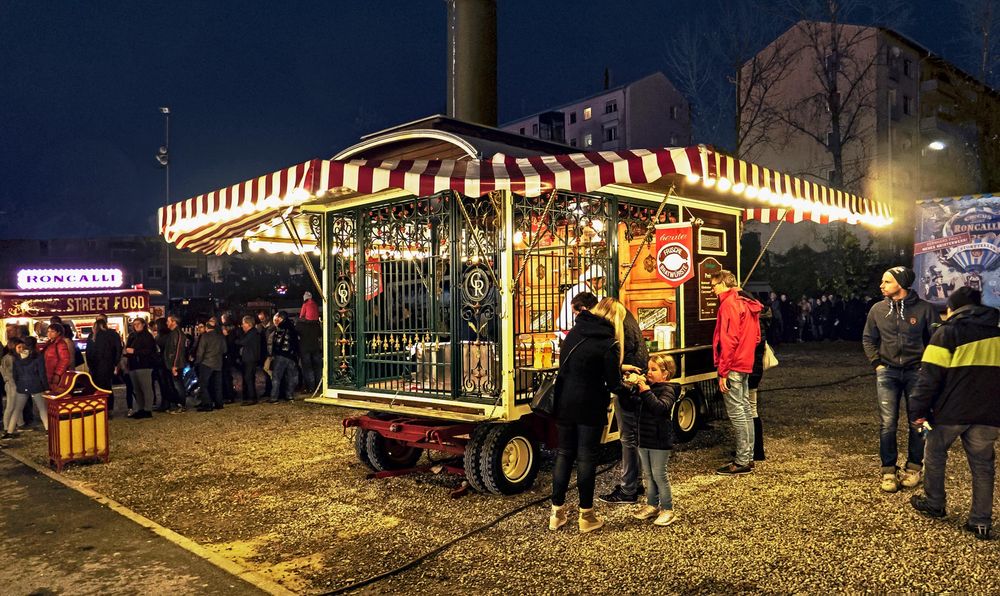The Roncalli Calendar 2024-2025 offers a comprehensive overview of the liturgical year, providing a roadmap for spiritual growth and liturgical planning. This calendar highlights key dates, events, and holidays, illuminating the structure and significance of the Catholic faith.
Delving into the liturgical year, the Roncalli Calendar explores the different seasons, feast days, and commemorations, unveiling their deep-rooted significance in the Catholic tradition. It also identifies and provides brief biographies of saints and blesseds whose feast days are included, shedding light on their contributions to the Catholic faith.
Calendar Overview: Roncalli Calendar 2024-2025

The Roncalli Calendar for 2024-2025 is a comprehensive resource for students, faculty, and staff. It includes important dates, events, and holidays, as well as university policies and procedures.
The Roncalli Calendar 2024-2025 is a great way to stay organized and keep track of important dates. If you’re looking for a more detailed calendar, check out the AACPS calendar 2024-2025. It includes information on school holidays, events, and more.
Once you’ve checked out the AACPS calendar, come back here for more information on the Roncalli Calendar 2024-2025.
Key dates for the 2024-2025 academic year include the first day of classes (August 25, 2024), the last day of classes (May 8, 2025), and the commencement ceremony (May 10, 2025).
Important Events
- Fall Break: October 14-18, 2024
- Thanksgiving Break: November 27-December 1, 2024
- Winter Break: December 20, 2024-January 5, 2025
- Spring Break: March 10-14, 2025
Holidays
- Labor Day: September 2, 2024
- Columbus Day: October 14, 2024
- Veterans Day: November 11, 2024
- Thanksgiving Day: November 28, 2024
- Christmas Day: December 25, 2024
- New Year’s Day: January 1, 2025
- Martin Luther King, Jr. Day: January 20, 2025
- Presidents’ Day: February 17, 2025
- Memorial Day: May 26, 2025
Liturgical Year
The liturgical year is the annual cycle of feasts, commemorations, and seasons that celebrates the mysteries of Christ’s life, death, and resurrection. It is a way for Christians to remember and participate in the events of salvation history.The liturgical year begins with the First Sunday of Advent and ends with the Feast of Christ the King.
It is divided into three main seasons: Advent, Christmas, and Lent. Each season has its own unique character and focus.
Advent
Advent is a time of preparation for the coming of Christ. It begins on the fourth Sunday before Christmas and ends on Christmas Eve. The readings and prayers during Advent focus on the themes of hope, waiting, and anticipation.
Christmas
Christmas is a time to celebrate the birth of Jesus Christ. It begins on Christmas Day and ends on the Feast of the Epiphany. The readings and prayers during Christmas focus on the themes of joy, peace, and love.
Lent
Lent is a time of penance and preparation for Easter. It begins on Ash Wednesday and ends on Holy Thursday. The readings and prayers during Lent focus on the themes of repentance, fasting, and prayer.In addition to the three main seasons, the liturgical year also includes a number of other feasts and commemorations.
These feasts and commemorations celebrate the lives of the saints, the events of salvation history, and the mysteries of our faith.The liturgical year is a rich and meaningful way to celebrate the Christian faith. It is a way to remember and participate in the events of salvation history, and to grow in our love for God and for one another.
Saints and Blesseds

The Roncalli Calendar honors the memory of saints and blesseds, individuals who have led exemplary lives and have been recognized by the Catholic Church for their holiness and virtue.
These saints and blesseds have played a significant role in shaping the Catholic tradition, inspiring countless individuals with their unwavering faith, dedication, and service to others.
Saint Francis of Assisi
Saint Francis of Assisi (1181-1226) was an Italian friar and founder of the Franciscan Order. He is known for his love of nature, his devotion to poverty, and his emphasis on humility and compassion.
Francis renounced his wealth and worldly possessions to live a life of simplicity and service among the poor and marginalized. He founded the Franciscan Order, which became one of the most influential religious orders in the Catholic Church.
Saint Catherine of Siena
Saint Catherine of Siena (1347-1380) was an Italian mystic, theologian, and diplomat. She is known for her visions, her writings on spirituality, and her efforts to promote peace and unity within the Church.
Catherine played a significant role in the resolution of the Western Schism, which had divided the Catholic Church for decades. She traveled extensively to promote peace and reconciliation, and her writings have been influential in the development of Catholic spirituality.
Blessed Carlo Acutis, Roncalli calendar 2024-2025
Blessed Carlo Acutis (1991-2006) was an Italian teenager known for his devotion to the Eucharist, his love of technology, and his charity towards the poor.
Carlo was diagnosed with leukemia at the age of 15 and died just a few months later. He offered his suffering for the sick and for the Church, and his story has inspired countless young people to live their lives with faith and purpose.
Cultural and Historical Events

The Roncalli Calendar marks significant cultural and historical events that have shaped the Catholic community and the world at large. These events provide opportunities for reflection, celebration, and a deeper understanding of our faith.
The calendar includes events such as the founding of religious orders, the canonization of saints, and important historical milestones that have had a profound impact on the Catholic Church.
Founding of Religious Orders
The founding of religious orders has played a pivotal role in the development of Catholicism. The calendar marks the anniversaries of the founding of orders such as the Franciscans, Dominicans, and Jesuits.
- Franciscans:Founded by St. Francis of Assisi in 1209, the Franciscans emphasize poverty, humility, and service to the poor.
- Dominicans:Founded by St. Dominic in 1215, the Dominicans are known for their intellectual pursuits and preaching.
- Jesuits:Founded by St. Ignatius of Loyola in 1540, the Jesuits are dedicated to education and missionary work.
Canonization of Saints
The canonization of saints is a solemn process by which the Catholic Church recognizes individuals who have lived lives of extraordinary virtue and holiness. The calendar includes the feast days of numerous saints, each with their unique story and inspiration.
- St. Teresa of Avila:A Spanish mystic and reformer, canonized in 1622.
- St. Francis Xavier:A Jesuit missionary, canonized in 1622.
- St. John Paul II:The first Polish pope, canonized in 2014.
Historical Milestones
The calendar also marks important historical milestones that have shaped the Catholic Church, such as the Council of Trent and the Second Vatican Council.
- Council of Trent (1545-1563):A series of meetings that defined Catholic doctrine and reformed the Church in response to the Protestant Reformation.
- Second Vatican Council (1962-1965):A gathering of bishops that modernized the Church’s liturgy, ecumenical relations, and social teachings.
Notable Anniversaries
The Roncalli Calendar commemorates significant anniversaries and milestones that have shaped the Catholic Church’s history and traditions. These events serve as reminders of the Church’s enduring legacy and its impact on society.
The Roncalli Calendar 2024-2025 is an excellent tool for staying organized and planning your year. But if you’re looking for a more comprehensive calendar that includes school events and holidays, check out the LCISD Calendar 2024-2025. This calendar includes all the important dates for the Lake Creek Independent School District, so you can easily stay on top of your child’s school schedule.
And once you’re done checking out the LCISD calendar, be sure to come back and check out the Roncalli Calendar 2024-2025 for even more great features.
Some notable anniversaries include:
100th Anniversary of the Encyclical “Rerum Novarum”
Pope Leo XIII issued this encyclical in 1891, addressing the social and economic issues facing the working class. It laid the foundation for the Church’s social teaching, emphasizing the dignity of workers and the need for fair wages and working conditions.
50th Anniversary of the Second Vatican Council
The Second Vatican Council (1962-1965) was a pivotal event in the Church’s history. It introduced significant liturgical, theological, and pastoral reforms, aimed at making the Church more relevant and accessible to the modern world.
25th Anniversary of the Fall of the Berlin Wall
The fall of the Berlin Wall in 1989 marked the end of the Cold War and the reunification of Germany. It also symbolized the triumph of freedom and democracy over communism, and the Church played a significant role in supporting the peaceful transition.
Special Days and Devotions
The Roncalli Calendar 2024-2025 includes special days of devotion, such as First Fridays and Marian feasts, that are significant to the Catholic faith and are observed by many Catholics.
These special days provide opportunities for prayer, reflection, and a deeper connection with God. Many Catholics observe these days with specific practices and traditions.
First Fridays
First Fridays are a special devotion to the Sacred Heart of Jesus. They are observed on the first Friday of each month.
The devotion to the Sacred Heart of Jesus emphasizes the love, mercy, and compassion of Jesus. It is believed that Jesus promised special graces to those who practice this devotion.
First Fridays are often observed by attending Mass, receiving Holy Communion, and spending time in prayer before the Blessed Sacrament.
Marian Feasts
Marian feasts are special days dedicated to the Blessed Virgin Mary. They commemorate significant events in her life or honor her special role in the Catholic faith.
Some of the most popular Marian feasts include:
- Solemnity of the Immaculate Conception (December 8)
- Solemnity of the Assumption of the Blessed Virgin Mary (August 15)
- Feast of Our Lady of Guadalupe (December 12)
- Feast of Our Lady of Lourdes (February 11)
- Feast of Our Lady of Fatima (May 13)
Marian feasts are often observed by attending Mass, praying the Rosary, and making pilgrimages to Marian shrines.
Design and Layout

The Roncalli Calendar is a visually appealing and well-organized publication. The design and layout are clean and modern, with a focus on readability and usability.
The calendar uses a variety of colors to highlight important information, such as liturgical feasts and saints’ days. The fonts are easy to read, and the images are high-quality and relevant to the content.
Colors
The Roncalli Calendar uses a variety of colors to highlight important information and create a visually appealing design. The colors are chosen carefully to be both eye-catching and easy to read.
- Red:Used for liturgical feasts and saints’ days.
- Blue:Used for special days and devotions.
- Green:Used for ordinary time.
- Purple:Used for Advent and Lent.
Fonts
The Roncalli Calendar uses a variety of fonts to create a visually appealing and readable design. The fonts are chosen carefully to be both easy to read and visually appealing.
- Arial:Used for the body text.
- Times New Roman:Used for the headings.
- Courier New:Used for the liturgical calendar.
Images
The Roncalli Calendar uses a variety of images to illustrate the content and create a visually appealing design. The images are chosen carefully to be both relevant and high-quality.
- Photographs:Used to illustrate saints’ lives and historical events.
- Artwork:Used to illustrate liturgical feasts and devotions.
- Maps:Used to illustrate the locations of saints’ shrines and historical events.
Comparison with Other Calendars

The Roncalli Calendar shares similarities with other Catholic calendars, such as the Roman Missal, in terms of its primary purpose: to provide a liturgical guide for the Catholic faithful. Both calendars include the liturgical seasons, feasts, and commemorations of saints and blesseds.
Content and Structure
One key difference between the Roncalli Calendar and the Roman Missal is the inclusion of additional information in the Roncalli Calendar. This includes cultural and historical events, notable anniversaries, and special days and devotions. The Roman Missal, on the other hand, focuses primarily on liturgical information.In terms of structure, the Roncalli Calendar is designed to be user-friendly and accessible.
It features a clear and organized layout, with color-coded sections and easy-to-read text. The Roman Missal, while also well-organized, may require more familiarity with liturgical terminology and structure for some users.
Practical Applications

The Roncalli Calendar serves as a valuable tool for spiritual growth and liturgical planning. By providing a comprehensive overview of the Catholic liturgical year, it fosters a deeper understanding of the faith and enriches personal devotional practices.
Moreover, the calendar highlights important cultural and historical events, notable anniversaries, and special devotions, offering a holistic perspective on the Catholic tradition and its significance in the wider context of human history.
Liturgical Planning
- Keep track of feast days, holy days of obligation, and other liturgical observances.
- Plan ahead for Mass attendance, special services, and other liturgical events.
- Coordinate parish or group activities around liturgical seasons and events.
Spiritual Growth
- Reflect on the lives of saints and blesseds, drawing inspiration from their examples.
- Commemorate important historical events that shaped the Catholic faith.
- Use the calendar as a guide for personal prayer and meditation, focusing on specific themes or intentions for each day.
FAQ Resource
What is the Roncalli Calendar?
The Roncalli Calendar is a Catholic liturgical calendar that provides a comprehensive overview of the liturgical year, including key dates, events, and holidays.
What is the significance of the liturgical year?
The liturgical year is a cycle of seasons and feasts that commemorates the life of Christ and the history of salvation.
Who are the saints and blesseds included in the Roncalli Calendar?
The Roncalli Calendar includes saints and blesseds whose feast days fall within the liturgical year, providing brief biographies and exploring their significance in the Catholic tradition.